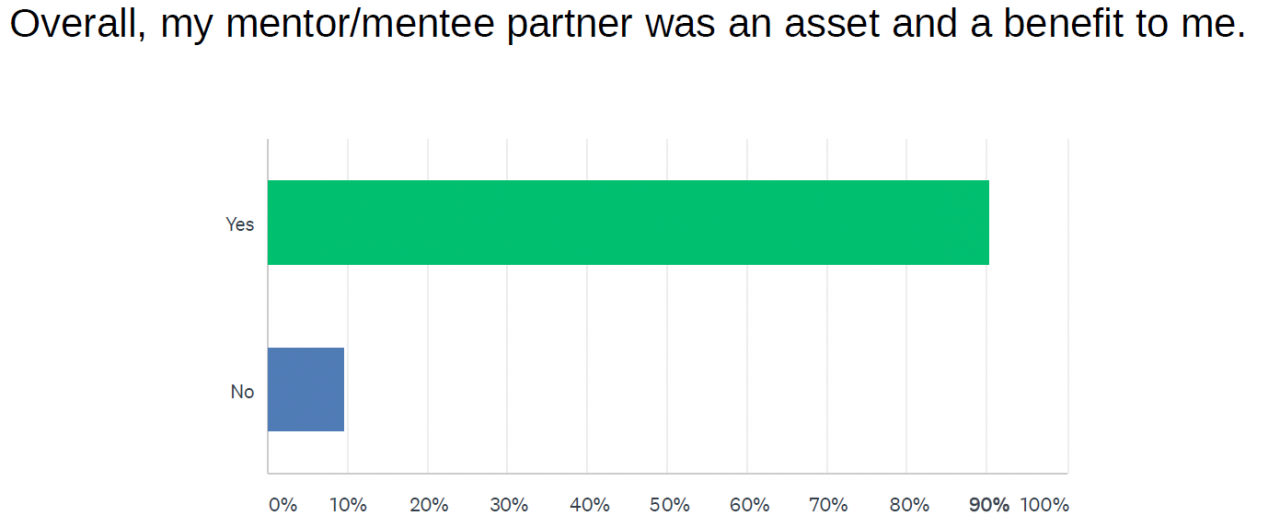If there was ever an occasion to connect with CME peers in a virtual format, a worldwide pandemic might just be the perfect time. The Alliance’s Pilot Mentoring Program launched in October 2020 when many of us had grown accustomed to virtual meetings, but the opportunities to foster new meaningful relationships with our CME community were not exactly plentiful.
The idea came to Michelle Skidmore, senior director of educational strategy at ArcheMedX, soon after she joined the Alliance Membership Committee in January 2020 and received immediate support from fellow members. She knew a mentoring program could give exposure to others in the CME community; however, more than just learning from each other one-on-one, she saw the value in learning as a group — and on a regular basis.
Unlike other mentorship programs where the mentor and mentee meet in person, maybe at a large event, but then are left to connect on their own, this program offered six monthly virtual meetings to help guide the conversations. All Alliance members were welcome to apply, and then it was limited to 50 participants, which Skidmore paired by experience, personalities and different areas of the field. Unsure of how people would respond in an increasingly over-Zoomed world, she was rather surprised by the overall participation. In a recent survey of participants, 90% felt their mentor/mentee relationship was beneficial.

CME departments can be robust or, in many cases, a “team” of one gets the job done. Sharing expertise, best practices and different perspectives are just a few of the reasons why participants joined. Not having to reinvent even just one wheel makes it worthwhile. Lyndsey Aspaas, manager of education and events for the Minnesota Medical Association, recalled “having to figure everything out myself” when she was starting out. She joined the mentor program because she wanted to share her “wisdom from years of experience.”
Dana Price, grants and development manager at Boston University School of Medicine, liked the “community share aspect to help automate processes, but also the diversity of the program.” She was paired with someone at a hospital with medical librarian experience prior to that role. Similarly, Stephanie Staggs has been program coordinator for CME for Texas A&M College of Medicine for the past nine years, while her mentee was brand new to CME at a medical education company. Staggs was “excited that the Alliance offered a program that really lent itself to fostering a relationship for longer than one meeting or activity” and noted it was “so nice to have different perspectives.”
Not everyone had such a disparity in years of experience, though. Peer mentoring was offered to mid-career professionals, such as Trisha Veenema, program manager at University of Utah for the past nine years, and Kelly McCoy, EVMS, assistant director of CME for Eastern Virginia Medical School for over six years. “Sharing information in a collaborative, non-intimidating way really expanded my learning,” Veenema commented. McCoy echoed, “Trisha already had been through some of my challenges and helped me think of beneficial tactics to overcome them. Plus, I think it’s really important to have those smaller talks.”
Those “small talks” and personal connections should not be underrated, especially during a pandemic. “It added an extra challenge to have kids at home, parenting and home-schooling while working … I didn’t realize how beneficial it would be to talk to someone outside of the day-to-day who knows what you’re going through but is not directly a part of it,” Aspaas noted.
Kenny Cox, CHCP, vice president of continuing medical education at ArcheMedX, Inc., with over 20 years of experience in CME, has been a mentor numerous times throughout his career and knew it would be rewarding. “Engaging with people is enjoyable, and I’ve found that the mentor learns as much as the mentee. Programs like this need structure, though, because it is hard to talk about career goals with a stranger. The monthly meetings provided very useful conversation starters,” Cox observed.
Topics such as self-assessment, goal setting, virtual work life, publishing and instructional design allowed for expert-led discussions, small group conversations in Zoom breakouts and plenty of reflection points for mentor/mentees to consider in their own dialogue. The kickoff meeting featured guest speaker, W. Brad Johnson, PhD, who is professor of psychology in the Department of Leadership, Ethics and Law at the United States Naval Academy, and a faculty associate in the Graduate School of Education at Johns Hopkins University.
Dr. Johnson is a mentoring expert and noted these benefits of a mentoring program:
- Stronger sense of professional identity
- More engagement and leadership in the Alliance
- Higher productivity
- More likely to mentor others
- Better job performance
- More networking and opportunities
- Greater satisfaction with organization
- Lower attrition rates
For TJ Moore, CME manager at the American College of Allergy, Asthma and Immunology, the networking proved valuable, as she was able to “connect with people on LinkedIn from the virtual meetings” who she would otherwise not have been introduced to. Citing that professional development was one of the reasons she joined the program, Moore enjoyed that “interactivity was encouraged and that the different presentations kept learning fresh.”
Even seasoned professionals, such as Gene Richer, director of CME for the Colorado Medical Society, with over 20 years of experience in the industry, noted that “the quality of the education provided in the monthly meetings is what surprised me.” Indeed, there is so much to learn with a career in CME, and it is always expanding. Richer considered the program to be a “wonderful experience” and wished “every person in CME could experience it.”
Do you want to be a mentor or mentee and become more engaged in your Alliance membership? Keep an eye out for more information about the next Alliance Mentoring Program.